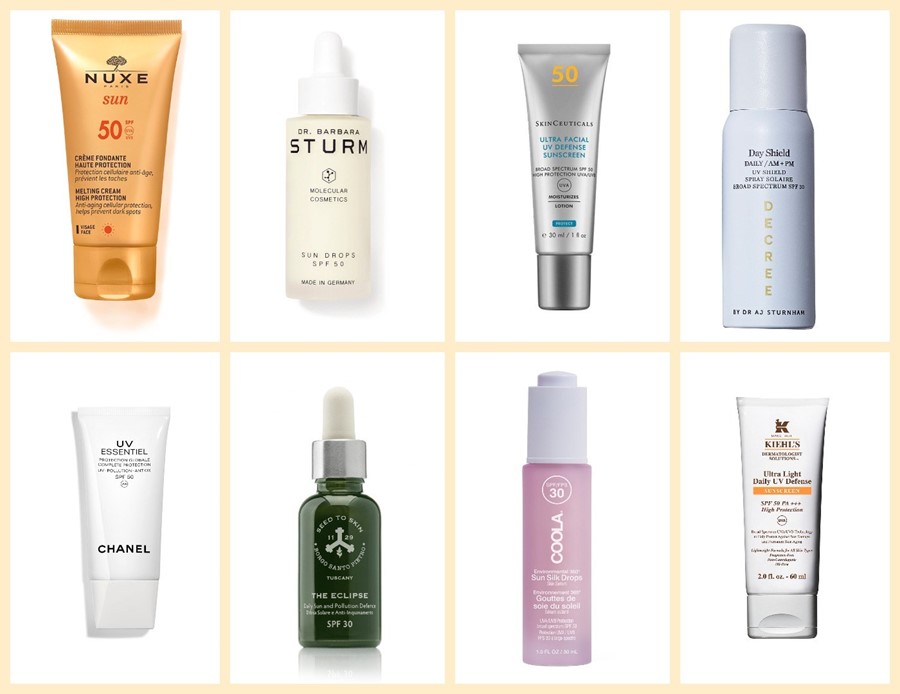We round up the most effective broad-spectrum sunscreens currently on the market, for all skin types, concerns and budgets
It only took me about three decades to realise that my skin would never tan. Despite years of defiant sunbathing – and a woefully misguided stint “building resilience” on sunbeds – my chalky complexion refused to emulate the gorgeous, golden glow of my melanin-enriched friends. Instead, my skin would weep and sizzle like a cut-price pork sausage, breaking out in random bursts of freckles and jagged magenta blotches. Had I known then what I know now, I probably would have never left my house.
It was only when I got to my late twenties that I realised what a mistake I’d made. No matter how many times beauty experts and older, sun-worn relatives scream at you to wear sunscreen, it’s easy to dismiss until the damage – such as deep lines, hyperpigmentation and even, in worst-case scenarios, skin cancer – is already done. That being said, now is always better than never when it comes to implementing a sunscreen regime, so we have rounded up some of the most effective SPFs currently on the market, for all skin types, concerns and budgets.
What should I look for in SPF?
The main thing to look for with your SPF is broad-spectrum care. While all SPFs provide protection from UVB rays – the same beams responsible for sunburn, prickly heat and redness – not all of them protect from UVA. The latter radiation is much more prevalent, causing premature ageing and skin cancer, according to the World Health Organisation. Be discerning about what each SPF product offers, and the level of protection it will provide.
Who needs to wear it?
Everyone. While pale skin tones are more susceptible to UVB damage, darker complexions are still at risk of UVA’s ultra-ageing rays – they’re just less likely to notice it (which is why dermatologists generally recommend that everyone wear at least SPF 30).
When should I apply?
Every day, after your moisturiser and before your make-up, and ideally in all seasons. You’re still exposed to UVA on cloudy summer days and in the depths of winter, even if it doesn’t feel that way. You also supposedly need to wear it when working near a window, as 50 per cent of UVA rays can penetrate glass. Some SPFs even offer protection from the blue light emitted from your laptop and phone screen – known as HEV – which may also cause photodamage. Apparently nowhere is safe!
